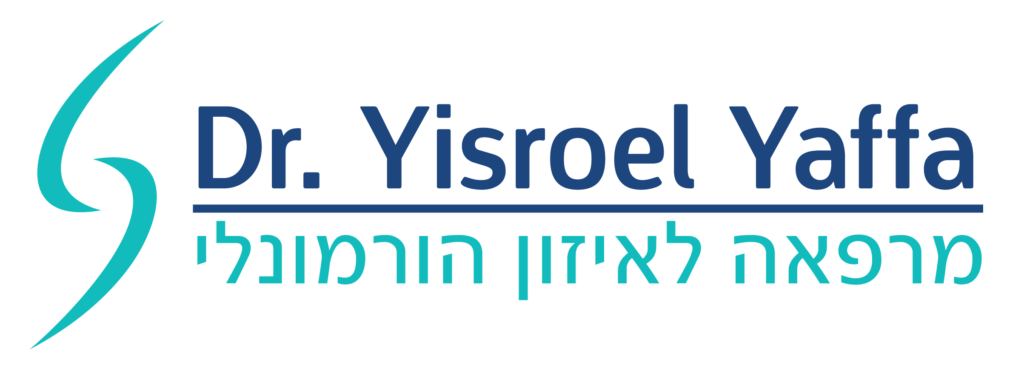Hashimoto Disease
Hashimoto disease is the main cause of under-activity of the thyroid gland (hypothyroidism) – a disorder in which the thyroid gland does not produce its hormones (T4 and T3), to the extent that it is sufficient to meet all the needs of the body for which it is responsible.
The disease mainly affects women, during times of hormonal imbalance: the start of getting her period, before or after pregnancy and around menopause time. It is an under-active thyroid with an autoimmune disease, in which the immune system acts paradoxically against the thyroid gland and sends antibodies that attack and destroy its cells. Being a progressive disease, the damage to the gland continues to develop with advancing age.
The greater the hormonal imbalance caused by the reduced activity of the gland, the more noticeable the symptoms and in extreme cases, may significantly impair the quality of life.
Hashimoto disease – conventional treatment
The main treatment offered by conventional medicine is drug therapy that mimics the thyroid hormone, usually through the synthetic form of the thyroxine (T4) hormone, called levothyroxine, and by its trade names, Thyroid Hormones. This treatment is designed to give back just one of the deficient thyroid hormones.
Since the body’s natural way to produce the T3 hormone is through the conversion of T4, which is carried out mainly in the liver, the basic premise of the treatment is that if you supply the body with the T4 hormone, it already knows how to produce the necessary amount of T3 on its own.
But, one of the problems with this therapeutic approach is that many people do not produce enough of the enzyme responsible for converting T4 to T3, which is the active form of thyroid hormone, and therefore continue to feel unwell even though their blood tests show that their blood hormone levels of TSH and Free T4 are normal and balanced.
Hashimoto disease – natural treatment and its benefits.
In many cases, natural treatments have great advantages compared to conventional treatment methods, but in the case of Hashimoto disease, it can be even more true. The reason for this is that the conventional treatment refers to a terribly narrow aspect of the problem and ignores a long list of other factors that affect the functioning of the gland.
Hashimoto natural treatment – how does it work?
At the hormonal balance clinic of Dr. Yisroel Yaffa, the treatment is based on a very comprehensive diagnosis, which, in addition to blood tests, also includes tests of saliva and stool in order to find problems in each of the aspects that affect the functioning of the …
- Thyroid gland:
- Immune system
- Digestive System
- The intestinal bacterial population
- Deficient in various minerals and vitamins.
- Hormonal imbalance resulting from the function of the adrenal gland, which is responsible for the production of adrenaline and cortisol and, in addition, abnormal levels of the sex hormones, progesterone and estrogen.
All of these interact with the thyroid gland and affect it directly or indirectly. After receiving the full picture, a personalized treatment plan is tailored that meets the patient’s needs.
Hashimoto disease and nutrition:
Hashimoto disease is an autoimmune disease that causes inflammation of the thyroid gland. As a result, the thyroid gland does not produce enough thyroxine hormones, which can lead to hypothyroidism.
Although there is no conclusive scientific evidence that diet can cure Hashimoto disease, there is evidence that certain dietary changes may help reduce disease symptoms and improve quality of life.
Here are nutritional tips that may be useful for Hashimoto patients:
- Increased consumption of foods rich in selenium:
Selenium is an essential mineral essential for the proper functioning of the thyroid gland.
Foods rich in selenium include Brazil nuts, fish, chicken, eggs, mushrooms and whole grains.
- Increased consumption of foods rich in iodine:
Iodine is an essential mineral for the production of thyroxine hormones.
Foods rich in iodine include sea salt, seaweed, fish and seafood.
- Reduced consumption of gluten
There are studies that indicate a possible link between celiac disease and gluten sensitivity and Hashimoto disease.
If you are experiencing symptoms of Hashimoto disease, it may be helpful to try reducing your gluten intake for a few weeks and see if there is an improvement.
- Reduced consumption of dairy products:
Some people with Hashimoto disease experience an immune reaction to dairy products. If you experience bloating, gas or stomach pain after eating dairy products, it may be helpful to reduce your intake.
- Increased consumption of fruits and vegetables:
Fruits and vegetables are rich in antioxidants and essential vitamins that are important for the proper functioning of the immune system.
- Increased consumption of healthy fats:
Healthy fats, such as those found in nuts, seeds, avocados and oily fish, can help reduce inflammation.
- Drinking lots of water:
Drinking water is important for keeping the body hydrated and for the proper functioning of all body systems.
- Ensuring regular physical activity:
Physical activity can help reduce inflammation, improve mood and strengthen the immune system.
- Stress Management:
Stress can make Hashimoto disease symptoms worse. It is important to find healthy ways to deal with stress, such as yoga, meditation or deep breathing.
- Sufficient sleep:
Sufficient sleep is essential for the proper functioning of the immune system and of all systems in the body.
It is important to note that these nutritional tips are general only.
The principles of natural thyroid treatment according to Dr. Yisroel Yaffa, uses hormone therapy based on biologically identical hormones., adjusting a nutritional plan to strengthen and balance the healthy population of intestinal bacteria, which are extremely essential for the proper functioning of the digestive system and the immune system. Both of these systems have a far-reaching effect on the quality of thyroid function.
Adopting a healthy lifestyle, which, in addition to a balanced diet, also emphasizes reducing mental stress, introducing physical activity into the daily routine, and other aspects.





